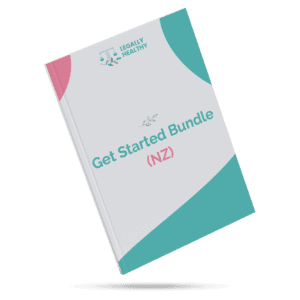Last updated: 23 September 2025
Caring for children and teens comes with extra legal and ethical responsibilities. Whether you’re a naturopath, nutritionist, massage or myotherapy practitioner, acupuncturist/TCM clinician, reflexologist, shiatsu or kinesiology practitioner, or yoga therapist—the same core questions pop up: who can consent, what can I share with parents, do I need a Working With Children Check, and does telehealth change anything? Let’s walk through the essentials.
Consent: who can say “yes” to care?
You must have valid, informed consent before treating any client. For children, consent usually comes from a parent or legal guardian. However, Australian courts recognise the “mature minor” principle (from Gillick): if a young person can understand the nature, risks, benefits, and alternatives of the treatment, they may consent in their own right.
In practice: explain the plan in age-appropriate language, check understanding, and document who consented and why (e.g., parent/guardian vs mature minor). If you judge a teen to be a mature minor, note the assessment (comprehension, voluntariness, and capacity).
Confidentiality: what can (and can’t) be shared?
Parents/guardians typically have access to a child’s health information. But if a young person is a mature minor, they may request confidentiality. Your job is to balance the child’s privacy with safety and any legal obligations.
In practice: set expectations at the first visit—what you’ll share, what you won’t, and the safety exceptions (risk of harm to self/others, abuse, etc.). Record any confidentiality decisions clearly in the notes.
Do I need a Working With Children Check (WWCC/Blue Card)?
Short answer: If you provide regular, structured services to under-18s—assume yes. This applies in person and online.
Online & telehealth: Some jurisdictions (e.g., WA) explicitly treat electronic communication as “contact.” The safest, most consistent approach nationally: if you regularly treat or coach minors online, hold the clearance for the state/territory where the child is located.
Current validity at a glance:
• NSW – Working With Children Check: 5 years + continuous monitoring (employers must verify before work starts).
• VIC – Working With Children Check: 5 years.
• QLD – Blue Card: 3 years; organisations must link each worker before they start (No Card. No Link. No Start.).
• WA – WWC Check: 3 years (includes electronic contact).
• SA – WWC Check: 5 years.
• TAS – Registration to Work With Vulnerable People: 5 years.
• ACT – Working With Vulnerable People: 3 years.
• NT – Ochre Card: 2 years.
Crossing borders (including telehealth): There is no general cross-recognition between states/territories. If you see children across borders, hold the clearance for each relevant jurisdiction (where the child is—and, if different, where you practise).
When a check may not be required: If your practice is strictly adults-only, you have no contact with under-18s (including online), and you run no child-facing programs, a check may not be needed. Always confirm locally.
Clinic owners & supervisors: simple governance that works
Have a one-page SOP that covers: who needs a check, how you verify (and in QLD, how you link workers), what you record (number, expiry, verification date), and what you’ll do if a status changes. Verify before anyone starts child-related work and keep a renewal calendar.
Mandatory reporting: know your threshold
Some practitioners are mandated reporters, and the threshold for “reasonable belief” or “significant harm” varies by jurisdiction. If you’re worried about a child’s safety, act promptly, follow your state pathway, and document what you did and why.
Presence of a parent/guardian
It’s not always legally required, but it’s often prudent for younger children. For teens assessed as mature minors, decide case-by-case and document. For telehealth, set clear ground rules (camera on, parent available if needed, no recording).
“Evergreen” reforms note
Governments are progressing national improvements to WWCC systems (better information-sharing and recognition of certain adverse decisions). Until those changes are implemented and operational, state/territory rules continue to apply. The guidance above reflects current law and shouldn’t need updating unless an official change is announced.
Quick wrap-up
- Consent: parent/guardian or mature minor; document your assessment.
• Confidentiality: set expectations early; protect privacy within safety and legal limits.
• WWCC/Blue Card: assume you need it for regular work with under-18s, including telehealth; hold the clearance where the child is; verify/link workers and keep records.
• Reporting & safety: know your local obligations; when in doubt about risk, act and document.
About Legally Healthy
Legally Healthy helps Australian health and wellness businesses stay compliant with practical, plain‑English legal templates and resources. If you need help updating your business legal documents, Shop Our Templates.
Disclaimer: This article provides general information for Australian health and wellness practitioners and is not legal advice. Requirements vary by state/territory and can change- please verify with your local regulator and seek independent legal advice if needed. Legally Healthy is a template provider and does not offer legal services.
Featured Products
-
Informed Consent & Client Agreement Template (AUS)
$87.00 Incl GST -
Get Started Template Bundle (AUS)
$650.00 Incl GST -
Get Started Template Bundle (NZ)
$650.00



